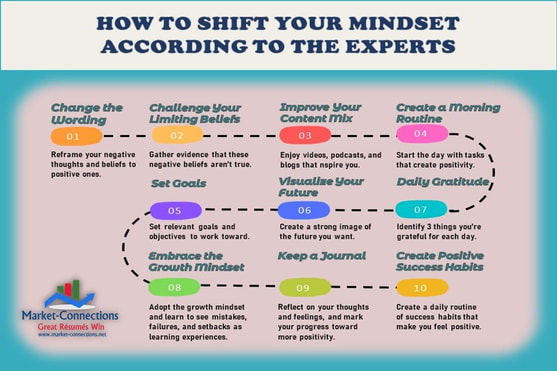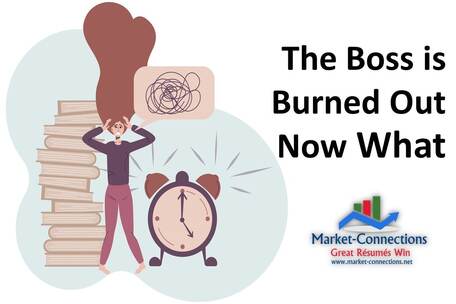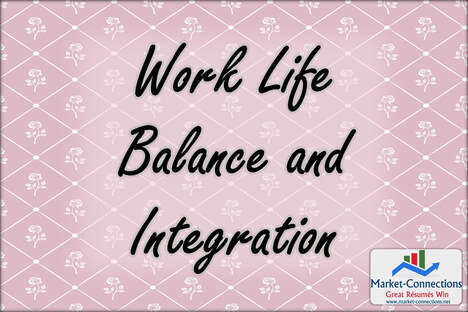|
Quitting your job for any reason can be stressful. That stress can be compounded when you like your boss. It can reach monumental proportions if you are friends with your boss outside of work. Quitting your job does not have to mean that you are leaving your friend high and dry or ending the friendship entirely. However, it does mean you will need to approach the topic of leaving with a little more tact. Don’t Spring the NewsA two-week notice is generally the standard rule of thumb when quitting a job. However, if you consider your supervisor your friend, you may want to give more notice, even a month or two, if possible. If you have just started looking and you feel that you have a good relationship with him or her, you may want to let them know that you are looking and why. This will most likely be a difficult conversation, but it is one best had if you feel comfortable enough. Your friend will also appreciate knowing ahead of time that your position will need to be filled. You may be asked to help train your replacement if at all possible. Offer Support After You LeaveNo longer working with your friend-boss might mean more than a typical turnover package or forwarding important documents through email. You may feel comfortable enough to continue offering support even once you have started a new job. While your offer may not be accepted, it will at least stand as a good-faith gesture. Also, if you truly are friends with your boss, you will continue to offer support as a friend outside of work on all fronts. Think Before You SpeakIt would be in your best interest and less awkward if you did not talk openly and freely about your job search or your new job, at least for a while. If your boss is truly your friend, he or she will support you in your new endeavor, but that does not necessarily mean you should wax on poetically about it. Maintain ProfessionalismWhile you might have a personal relationship with your boss, it’s crucial to maintain professionalism during your resignation process. This includes writing a formal resignation letter, completing your tasks diligently, and ensuring a smooth transition for your team. Your boss will appreciate your professionalism, and it will help preserve your friendship by demonstrating respect for your work environment and your colleagues. Plan for a Transition PeriodOffering to stay on board for a transitional period can greatly ease the burden on your boss and show your commitment to the team. This could mean working part-time for a few weeks after your official last day, helping to onboard and train your replacement, or making yourself available for questions and support as your team adjusts to the change. This effort not only supports your boss but also showcases your dedication and reliability. Communicate Openly and HonestlyTransparent and effective communication in the workplace is key when quitting your job, especially when your boss is a friend. Explain your reasons for leaving clearly and honestly, whether they are personal, professional, or a mix of both. This honest communication will help mitigate any potential feelings of betrayal or misunderstanding. Additionally, reassure your boss that the decision is not a reflection of their leadership or your friendship, but a step towards your own personal growth and goal for professional development. Make Time for the FriendshipAfter you’ve left the job, make a conscious effort to maintain your friendship outside of work. Schedule regular meet-ups, whether it’s for coffee, lunch, or a weekend activity you both enjoy. Transitioning from a professional to a purely personal relationship can be challenging, but with intentional effort, your friendship can thrive. This dedication will show your boss that you value friendship and are committed to keeping it strong despite the change in your professional life. Source: https://www.market-connections.net/blog/how-to-quit-your-job-when-you-are-friends-with-the-boss About the AuthorMandy Fard is a Certified Professional Resume Writer (CPRW, CMRW) and Recruiter with decades of experience in assisting job seekers, working directly with employers in multiple industries, and writing proven-effective resumes. The job market has changed dramatically over the last decade, and almost every industry has seen a wealth of changes, transformations, and evolutions. In many ways, there has never been a better time to change your career and try something new. If you are looking to change your career, but have no idea where to start, then starting your own business could be the answer to your issues. But where do you start? If you are looking to make a change, but are stuck for ideas, here are four business ideas that can help you achieve both goals. Become An Independent ContractorIf you want to change careers but don’t know where to begin, becoming an independent contractor may be just what you need. You can use the job that you are already working in to get started, especially if you have a particular skill or strength. This will give you more control over your schedule and work hours, which will give you greater flexibility when it comes to finding your dream job. And because you’re not tied down by office politics, you won’t have to worry about being passed over for promotions or having to handle your performance reviews. By working as an independent contractor, you will also have the opportunity to build up a portfolio of clients who will be able to recommend you to other businesses. Start A Home-Based BusinessAnother way to change your career is to take advantage of the fact that so much of our lives now happen online. From social media to email, we spend most of our waking hours connected to computers, phones, and tablets. While this may have a few issues, it also means that there are plenty of opportunities to make money online. So why not set yourself up with a remote career that allows you to work whenever you want? When starting a from-home business, you can choose to sell anything from digital products such as eBooks, music, and videos, to physical items like clothing and furniture. Or you can even offer services like web design, graphic design, SEO (Search Engine Optimization), and marketing through various platforms. Sell On AmazonAmazon is one of the biggest retailers in the world, and they are always on the lookout for new sellers. This means that you can easily become an affiliate seller on their platform, which gives you access to millions of potential customers. Getting started as an affiliate seller is a fairly straightforward process - simply head to the relevant page on the Amazon site. Create A Digital ProductAs well as selling physical products, you can create digital products too. These include software programs, apps, games, courses, and guides. You can either charge people to download them or sell subscriptions to them. You can sell directly from your website, blog, or Facebook page, meaning you don't have to pay any fees to list your product and that you have complete control over every step of your sale. The great thing about creating a digital product is that you can sell them anywhere, meaning you can reach a global audience without additional costs. Final ThoughtsWhether you're looking to transform your career, add something new to your existing career, or start something brand new with a home-based business, these ideas should help you find inspiration and motivation to make your dreams come true. About the AuthorMandy Fard is a Certified Professional Resume Writer (CPRW, CMRW) and Recruiter with decades of experience in assisting job seekers, working directly with employers in multiple industries, and writing proven-effective resumes. Mapping Your Career Trajectory: Assessing Achievements and ChallengesAs we approach the end of 2023, it's the perfect time to reflect on our professional journeys and plan for the year ahead. Conducting a career audit is a valuable exercise that can help you assess your current position, set goals, and make informed decisions for your future. Using a career development planner will also be very helpful. In this guide, you will explore the steps involved in a thorough career audit and you will find resources to assist you in the process. STEP 1: Reflect on Your Achievements and ChallengesBefore diving into the future, take a moment to look back on the past year. What were your major accomplishments? What challenges did you face, and how did you overcome them? Moving on from a career opportunity or business setback provides valuable insights into your strengths and areas for improvement. STEP 2: Evaluate Your Skills and KnowledgeSkills and knowledge are the foundation of any successful career. Assess your current skill set and identify areas where you can enhance or acquire new skills. Online platforms like LinkedIn Learning and Coursera offer a wide range of courses to help you upskill and stay competitive in your field. STEP 3: Review Your Goals and AspirationsAre your current career goals aligned with your aspirations? Take the time to reassess and refine your professional objectives. If you're unsure about your long-term goals, websites like MindTools and CareerOneStop provide tools and resources to help you clarify your career path. STEP 4: Evaluate Job Satisfaction and Work-Life BalanceJob satisfaction and work-life balance are crucial aspects of a fulfilling career. Consider whether your current role aligns with your values and provides the balance you need. If you're contemplating a career change, Monster and Glassdoor offer insights into company culture and employee reviews. STEP 5: Update Your Professional PresenceYour online presence plays a significant role in career advancement. Update your resume, LinkedIn profile, and other professional platforms to reflect your latest achievements and skills. Ensure your online presence aligns with your career goals. Market-Connections Professional Resume Writing Services can write a compelling resume aligned with your career goals. STEP 6: Seek FeedbackGathering feedback from peers, mentors, or supervisors is an invaluable part of a career audit. Constructive feedback can provide insights into areas for improvement and help you make informed decisions about your professional development. * * * * * * * * * As we approach 2024, a career audit is a proactive step towards achieving your professional goals. By reflecting on your achievements, assessing your skills, and refining your goals, you can set the stage for a successful and fulfilling year ahead. Remember, a career is a journey, not a destination. Regular audits help ensure you stay on the right path and make informed decisions that align with your aspirations. Best of luck on your career journey in 2024! YOU MAY ALSO LIKE: www.market-connections.net/blog/4-tips-for-sticking-to-your-new-years-goals https://www.market-connections.net/blog/newyear-newjob About the AuthorMandy Fard is a Certified Professional Resume Writer (CPRW, CMRW) and Recruiter with decades of experience in assisting job seekers, working directly with employers in multiple industries, and writing proven-effective resumes. Saying "no" to your boss, manager, or supervisor can be daunting. When you accept a job, you commit to following the instructions of those in charge. Nonetheless, it's important to remember that saying "yes" to everything isn't always the best option. There may come a time in your career when saying "no" is necessary to maintain the quality of your work or adhere to your ethical principles. The question is, how do you say no effectively, without risking the loss of your job? Why Saying “No” is ImportantAs employees, we often assume the only response to a manager or supervisor is “yes”. However, there are genuine reasons why you may need to refuse to do something from time to time. Some of the most common reasons to consider saying no include:
How to Say “No” To Your BossThe first step in saying “no” to your boss, or another peer in your organization, is making sure you plan properly. Simply saying “no” without a valid and logical reason (like one of the options above), can make you look unprofessional. When saying no:
Pay attention to how your supervisor responds when you say “no”, as this will help you use the right strategies in the future. You may also like: (https://www.market-connections.net/blog/how-to-give-feedback-to-your-boss) (https://www.market-connections.net/blog/when-the-boss-is-burned-out) (https://www.market-connections.net/blog/easy-ways-to-impress-your-boss) About the AuthorMandy Fard is a Certified Professional Resume Writer (CPRW, CMRW) and Recruiter with decades of experience in assisting job seekers, working directly with employers in multiple industries, and writing proven-effective resumes. We all want happiness, success, and fulfillment. So, what's standing in the way? It's often a matter of mindset and it is important to have an understanding of the growth mindset definition. Your mindset is how you approach the issues and challenges you face. How you think about these matters affects everything you do, so it's essential to remain positive. With the right mindset, you can rise to any challenge. Here are tips from the experts on shifting your mindset for success. Change the WordingOne way to adopt a better mindset is to reframe the wording of what you think and believe. We all have negative beliefs that hold us back. Sometimes, they manifest themselves as negative self-talk. For example, you might say, "I'm not good enough," or "I can't do this." You can adopt a more positive mindset by reframing them:
Even something like, "I hate my job," can be reframed to, "I'm doing what I need to do now and transitioning to something better." The first step to reframing is to identify your negative thought patterns. Then, pay attention to the voice inside your head and what it tells you. Other ways to discover your negative thoughts are to journal, practice mindfulness, or seek feedback from people who know you well. Challenge Your Limiting BeliefsYou can create an even more lasting effect by challenging your negative thought patterns and demonstrating they're untrue. For example, you can collect evidence that proves otherwise if you feel you may need to overcome imposter syndrome and are not good at what you do. When these negative thoughts appear, you can counteract them with this evidence. Look at results you've gotten before, or seek positive feedback from others. Learn how to use your successes and failures to your advantage. It can also help to review the 7 definitive steps to success. If you feel like you're not successful, it might help to realize that no top performer was born that way. Everyone needed to improve like you're doing now. Improve Your Content MixYou can significantly change your mindset by consuming more empowering content. Find videos, podcasts, and blogs that make you feel inspired. Use content that fires you up and gets you ready to take action. Learn how to stay motivated after a setback. Podcasts are a great way to feel more empowered because you can listen to them while you work, commute, or do things around the house. It's like a voice in your ear inspiring you as you go about your day. For career-related topics, be sure to visit career podcasts. Create a Positive Morning RoutineWhat do you do when you first wake up in the morning? How do you spend the first few hours of the day? The way you spend the morning sets the tone for the whole day. So creating a morning routine that makes you feel positive and energized is an excellent idea. Then, you'll approach everything you do with more positivity. Start by deciding what you'll do when you first wake up. Next, choose activities that will help you feel positive. The keyword here is "positive" not comfortable. If anything, you are to step out of your comfort zone. It's all about how to step out of your comfort zone. Set Goals Setting goals helps you shift your mindset by focusing on positive future outcomes. Using tools to measure your goals will help even more. When you set goals, you create this future for yourself, choosing what you want and don't want. You know what you're working toward when you have clear and specific goals. Staying motivated is more manageable when you have a bad day or experience a setback. You'll realize that one setback doesn't erase all your progress. If you work from home, it becomes even more important to stick to your goals because it's so much easier to slip back into your comfort zone when you are at home every day. Learn how to stay motivated while working from home. Visualize the Future You WantAlong with setting goals, visualization helps you focus on the future you want, which brings positivity into your life today. Choose a time in the future and imagine your life and business in as much detail as possible. Use all your senses to visualize what it would be like. You can practice this visualization daily or whenever you need some positivity. This is a great element to add to your morning routine. Express Daily GratitudeDaily gratitude is extremely powerful in creating a positive mindset and sense of abundance. It makes you appreciate all the good you have in your life. The best way to do this is through a gratitude journal. Sit down every day and write down three things you're grateful for. In addition to positivity, your gratitude journal will make you more resilient, reduce stress, and improve your mental health. After a while, this practice will make you define resilience for yourself in an whole new way. Embrace a Growth MindsetA good "growth mindset definition" is a perspective that sees human beings as capable of change and growth. It differs from a fixed mindset, which says people can't fundamentally change. Developing a growth mindset will give you a more positive way of thinking. There are many ways to do this, but the most impactful is to reorder the way you see challenges and learning. For example, people with a growth mindset see every experience as a chance for growth. This is particularly the case with challenges, failures, and hard times. Instead, it would help if you understood that whether you succeed or fail, you'll come through your trials knowing more than before. Keep a JournalKeeping a journal is a great way to become more positive. Reflecting on your thoughts and feelings makes you more self-aware, so you can quickly identify negative thoughts or self-talk. Then you can develop strategies to change them. Journaling helps your mindset by allowing you to work through problems and brainstorm solutions in writing. You can then develop action plans to make the changes you need. It also provides a way to "talk" and vent your emotions. Creating Positive Success HabitsCreating positive success habits is the best way to shift to a positive mindset. Choose a few from the above or others you may find and create a routine where these strategies become ingrained in your everyday life. With increased positivity, you'll find it easier to get things done and keep negativity and stress at bay. About the AuthorMandy Fard is a Certified Professional Resume Writer (CPRW, CMRW) and Recruiter with decades of experience in assisting job seekers, working directly with employers in multiple industries, and writing proven-effective resumes. Most human beings cling to comfort, though science has proven that leaving your comfort zone is where the most significant achievement takes place. If it weren't for taking uncertain steps out into a scary world, we would still be living in caves and waiting around for someone to discover fire. Thomas Alva Edison would never have given us the light bulb, Thinking about changing careers can be scary. Most people just stay right where they are, because they are frightened by the possibility of failure. Since they have their family to provide for, they make the justification that they shouldn't tempt fate, since moving to a new career might not turn out so well. So that person sticks with their current career even though they are not happy, years later wondering "what could have been." Leave your Comfort Zone to Learn About Your StrengthsSports records fall every day because athletes keep pushing themselves. They are not happy with their current level of achievement. They want to know how good they can be, so they train and work very hard. They push themselves out of their comfort zone, their regular training regimen. They lift heavier weights, work out longer, and run faster. The result of becoming uncomfortable, training as they have never trained before, is new personal bests and sometimes world records. This is because of something known as the Yerkes-Dodson Law. Dodson and Yerkes were a couple of psychologists who, in the earliest years of the 20th century, discovered that stress leads to achievement. What they found was that significant achievement did not happen until a person took small steps outside of the environment, surroundings, and behaviors where he felt most comfortable. Small Steps Lead to Big ChangeThey noted that when someone was put in an entirely uncomfortable, stressful environment, performance was horrible. However, taking small steps outside of a person's comfort zone slowly began to expand the area where that person was happy and comfortable. Over time, it becomes easier and easier to take on new tasks and expose yourself to unfamiliar experiences. If your job is challenging physically or mentally, maybe you are in a wrong career path. Don't take a giant leap, take a baby step instead. Rather than immediately moving from one career to another, why not take a part-time job in a career that interests you? Maybe you can sign up for classes or certification in some field that has captured your attention. These small steps outside of your comfort zone will eventually give you the confidence to move onto an entirely different career if your current field of employment is not working out. Cut Your Expenses Before You Start Changing CareersSwapping one career for another can be incredibly stressful. That is the best case scenario. Sometimes, the mental fatigue and anxiety experienced when considering moving to another area of employment can lead to physical and mental health problems. The last thing you should be doing is adding to your stress. This means you should have your finances in order before you decide to start upon an entirely new career path. Considering the cost of a career change, you should already have a budget that you follow religiously. If you don't, start one now. Write down every single outgoing expense and every bit of income. Look for ways to streamline your outgoings, and improve your income. If there is no way you can earn more money, just cut back on your expenses. This will account for automatic savings, which can present a nice cushion if your career change doesn't offer the immediate financial rewards you're looking for. When career shifting, it is common for you to have to start out earning less money than you are now. This is not always the case, but it is much of the time. Having a year's worth of living expenses tucked away gives you the peace of mind to dedicate your mental energy to succeed in your new career. You won't be worrying at the end of the month how you are going to pay your bills. You may also decide to take on a part-time job to make extra money. If you do this, try to get employment that will teach you skills and abilities useful in your new career. A part-time job makes you money two different ways. You get paid for your work and if you are spending a few evenings each week working, those are not nights you are out and about spending money. You may have an opportunity to move into a smaller home or apartment. If this makes sense for you, by all means, do it. Cutting down on your monthly rent or mortgage is a fast way to free up some substantial money. Have a garage sale, or sell some of your possessions online. If you're serious about changing careers, you don't need a lack of money to make the situation harder than it already will be. Ask yourself some hard questions about the money you spend, and see if you can generate any new income. In just 6 and 12 months you could set aside enough money to keep your mental focus on your new career, instead of worrying about your finances. SOURCE: https://www.market-connections.net/blog/why-is-career-change-so-hard About the AuthorMandy Fard is a Certified Professional Resume Writer (CPRW, CMRW) and Recruiter with decades of experience in assisting job seekers, working directly with employers in multiple industries, and writing proven-effective resumes. What to do When the Boss is Burned OutThe Boss is Burned Out. Now What… Is it difficult to get your boss to pay attention to you these days? Maybe they’re taking long lunches and ducking calls from clients. Maybe you’re afraid to ask any questions because they’ve been extra critical lately. This lack of enthusiasm could mean that your boss is burned out. It’s common these days. “Almost 96% of senior leaders reported feeling burned out on some level, and 33% said their condition was extreme,” according to a recent study by Harvard Medical School. Before you start searching for an example letter of resignation, try to address the situation. Consider these ideas for steps you can take to deal with a boss who may be exhausted and overwhelmed. Steps to Take Yourself
Steps to Take with Your Boss
You may be able to adapt while your boss resolves their situation, or you may be thinking about when and how to quit a job if your working conditions start having a negative effect on your overall wellbeing. Staying positive and keeping up with your responsibilities will help you to support your boss and keep your career on track. About the AuthorMandy Fard is a Certified Professional Resume Writer (CPRW, CMRW) and Recruiter with decades of experience in assisting job seekers, working directly with employers in multiple industries, and writing proven-effective resumes. In some circles, discussions about work-life balance have shifted to talking about work-life integration. Whatever you call it, many people are searching for a way to juggle their personal and professional roles. More than half of all employees say that job demands sometimes interfere with their responsibilities, according to a study by the American Psychological Association. Try these suggestions to help you meet your daily challenges. Guiding Principles
Time Management
Additional Suggestions
It’s a big job to coordinate all the facets of your life. Think about your how to use your successes and failures to your advantage and plan to align your personal and professional responsibilities. About the AuthorMandy Fard is a Certified Professional Resume Writer (CPRW, CMRW) and Recruiter with decades of experience in assisting job seekers, working directly with employers in multiple industries, and writing proven-effective resumes. How to Handle Multiple Job OffersYou’ve interviewed with a company and things went well. The next step is to receive the job offer. In most cases, it’s a simple process — they offer you the job and you must already know how to evaluate a job offer before you accept. But sometimes there are circumstances surrounding the job offer(s) that complicate the process. So, what is a job seeker to do when more than one job offer is on the table? Here are strategies for handling the situation when multiple job offers are being considered. Multiple Job OffersQUESTION A job seeker recently asked: I’ve been interviewing for several jobs simultaneously. What if two companies offer me a job? ANSWER This is a great situation to be in! It feels wonderful to be wanted, doesn’t it? Sometimes, it’s an easy decision to make. But it can be a difficult decision if you like both companies. Of course, there are advantages and disadvantages to each job and that can help you make your decision. A “pros and cons” list can be a good way to objectively evaluate which position is the best fit. First, consider how to evaluate a job offer. Possible categories to assess can include:
A more likely scenario, however, is that you will receive one job offer before the other. So what do you do if you receive a new job offer AFTER you already accepted a job offer? New Job Offer After You Already Accepted A Job OfferQUESTION A job seeker recently asked: What do I do if I accepted a job with Company A, but Company B offered me a job after I started my new position? ANSWER If you’ve already started working at Company A, this puts you in an uncomfortable position. Your current employer has invested time and money in the hiring process, and has put resources towards training you and getting you up to speed with the company. So don’t make the decision to leave lightly. Again, assess the pros and cons of both positions. It's important to know how to evaluate a job offer. But if you are going to make a change, make it quickly. You will be burning bridges, but you don’t need to make it any more difficult than it needs to be. Offer your resignation to your new supervisor in person. Don’t put it in an email or text message. Be gracious. Thank them for this opportunity. You may even want to explain that you Are surprised to be offered your “dream” position, and it’s an opportunity that you just couldn’t pass up. Offer your two weeks’ notice (Two Weeks Notice Template), as you would if you were a long-time employee. Letting your new boss know right away also holds true if you have accepted the job at Company A, but haven’t yet reported to your first day of work. If you are going to revoke an accepted offer of employment, let the company know as soon as possible. Don’t wait to let them know — and don’t just fail to show up for your first day of work. While the company may be disappointed with your decision, the sooner you let them know you’re taking another job, the better. And what do you do if you let your current boss know you’re accepting a new position, and they tell you they don’t want to lose you? A Job Offer Counter Offer is not to be taken lightly. Be sure to look at all angles before you consider moving forward. Waiting for Job OfferQUESTION A job seeker recently asked: I’ve interviewed with two companies. I’ve been offered a job with Company A, but I want to see if I get an offer from Company B (which is the company I really want to work for). How do I handle this? ANSWER Do you have an idea of when Company B will be making a hiring decision? That can influence how you handle your response. If you’ve interviewed with both companies, and are waiting for job offer from Company B in the next 48-72 hours, you may be able to strategically “stall” Company A by requesting the offer in writing so you can review it “before accepting.” You can also take this opportunity to negotiate the offer, which may buy you some additional time. Consider the resources offered in this article: How to Negotiate Salary. Chances are you have not already discussed when to follow up after interview with Company B. So, if Company B hasn’t told you when the hiring decision will be made, you can contact the Hiring Manager and ask about a timeframe. You may even mention that you have been offered another position, but theirs is the job you really want, and you wanted to follow up to see what the timeframe is for making a decision before you let the other company know if you were going to accept their offer. However, there’s that old saying, “A bird in the hand is worth two in the bush.” You may not receive a second job offer. And if you put off Company A for too long — or don’t act “interested enough” — you may even lose that job offer. In some cases, you may be better off taking the job with Company A and then seeing what happens with Company B. Prepare your Job Offer Acceptance email. In the "Job Offer" SeriesHOW TO EVALUATE A JOB OFFER https://www.Market-Connections.net/blog/How-to-Evaluate-a-Job-Offer WAITING FOR JOB OFFER https://www.Market-Connections.net/blog/Waiting-for-Job-Offer JOB OFFER COUNTER OFFER https://www.Market-Connections.net/blog/Job-Offer-Counter-Offer CONDITIONAL EMPLOYMENT OFFER https://www.Market-Connections.net/blog/Conditional-Employment-Offer HOW TO HANDLE MULTIPLE JOB OFFERS https://www.Market-Connections.net/blog/How-to-Handle-Multiple-Job-Offers About the AuthorMandy Fard is a Certified Professional Resume Writer (CPRW, CMRW) and Recruiter with decades of experience in assisting job seekers, working directly with employers in multiple industries, and writing proven-effective resumes. Job Offer Counter OfferYou’ve interviewed with a company and things went well. The next step is to receive the job offer. In most cases, it’s a simple process — they offer you the job and you must already know how to evaluate a job offer before you accept. But sometimes there are circumstances surrounding the job offer that complicate the process. When you submit your resignation Letter (Template for Resignation Letter), your current employer may surprise you with a counter offer... Here are strategies for handling the situation when a counter offer from a current emploer is on the table. Counter Offer from Current EmployerQUESTION A job seeker recently asked: I was offered a job, but when I turned in my resignation at my current company, my boss made me a counter-offer to stay. What should I do? ANSWER This is a tricky one, because EngageScientific.com has a solid list of reasons for not accepting a counter offer. One of the reasons listed clearly states the following: "Statistics show that if you accept a counteroffer, the probability of voluntarily leaving in six (6) months, or being let go within one (1) year, is extremely high.
Many times, it’s because the employee was fired, not because they received another job offer. Moreover, there is BusinessInsider's advice in "Why You Should or Shouldn't Take the CounterOffer When Resigning" If you are in the midst of working on a key project when you get another job offer, your boss may offer you more money to stay so that the project can be completed. However, when the project ends, you may not be assigned to another key project because you’re seen as “disloyal” or a “flight risk,” or you may be asked to train other employees on your major responsibilities and tasks in case you do get offered another job — because the company doesn’t want to be caught in that same position again. From a personal perspective, there was obviously a reason why you were considering or looking for a new job. Once you have submitted a Resignation Letter (Two Weeks Notice Example), it may be too late to request to get the raise you deserve. Often, a higher salary isn’t the only reason why people accept a new job offer. Even if your current employer matches the salary offered by the new employer, the counter offer won’t address other reasons why you were considering a job change or career change. In the "Job Offer" SeriesHOW TO EVALUATE A JOB OFFER https://www.Market-Connections.net/blog/How-to-Evaluate-a-Job-Offer WAITING FOR JOB OFFER https://www.Market-Connections.net/blog/Waiting-for-Job-Offer JOB OFFER COUNTER OFFER https://www.Market-Connections.net/blog/Job-Offer-Counter-Offer CONDITIONAL EMPLOYMENT OFFER https://www.Market-Connections.net/blog/Conditional-Employment-Offer HOW TO HANDLE MULTIPLE JOB OFFERS https://www.Market-Connections.net/blog/How-to-Handle-Multiple-Job-Offers About the AuthorMandy Fard is a Certified Professional Resume Writer (CPRW, CMRW) and Recruiter with decades of experience in assisting job seekers, working directly with employers in multiple industries, and writing proven-effective resumes. |
Categories
All
powered by Surfing Waves
AuthorMandy Fard is a Certified Professional Resume Writer (CPRW, CMRW) and Recruiter with decades of experience in assisting job seekers, working directly with employers in multiple industries, and writing proven-effective resumes. Archives
July 2024
|
-
Greater Los Angeles
and Kern County
-
[email protected]
.













 RSS Feed
RSS Feed



